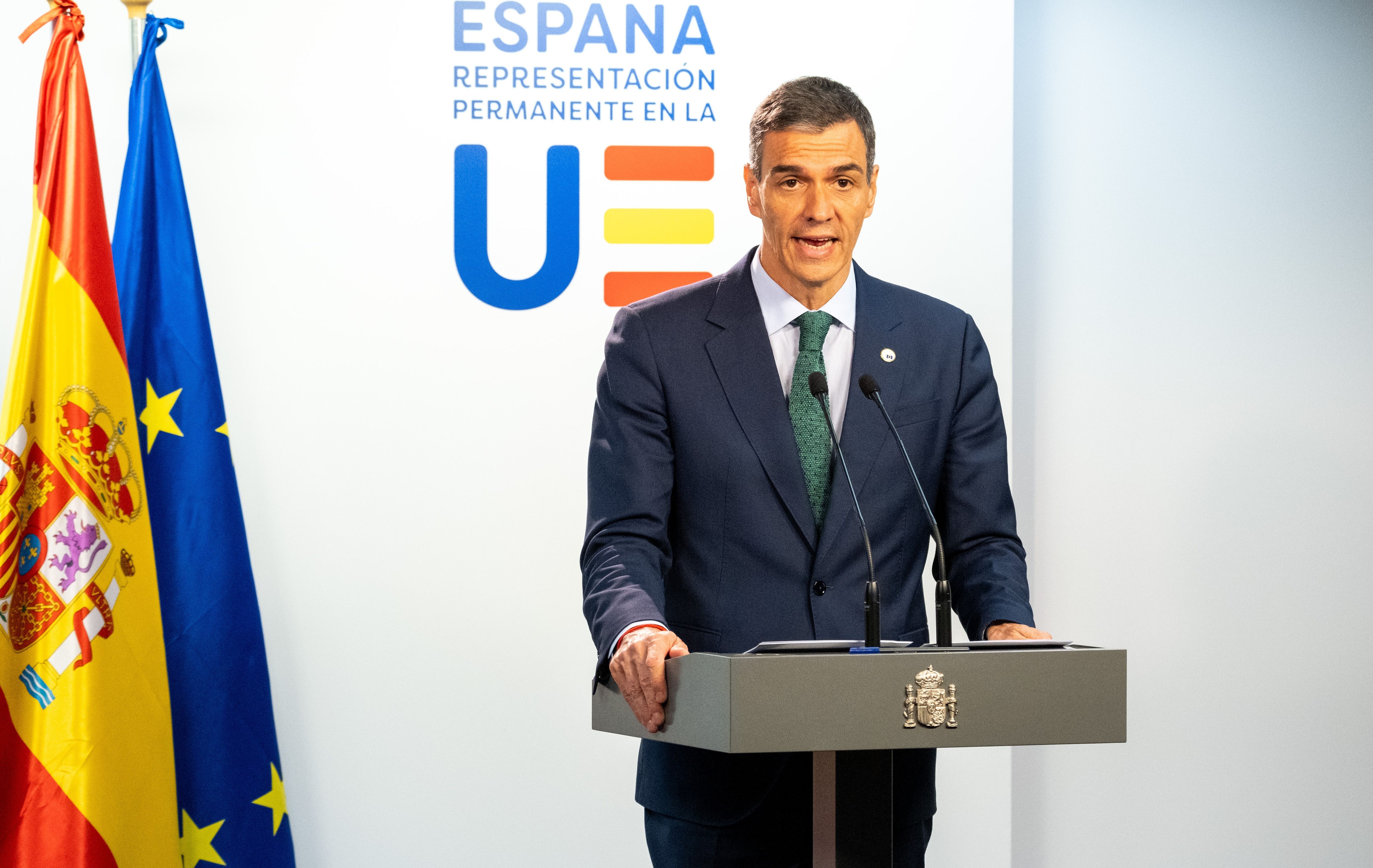The final stage of the Vuelta a España, Spain’s premier cycling race, was abandoned in chaos on Sunday. Pro-Palestinian protesters, chanting “they will not pass,” overturned barriers and occupied the route in Madrid, forcing organizers to cancel the finale and its podium ceremony. The demonstrators’ target was the participation of an Israeli team. In a statement that captured the moment, Spain’s Prime Minister Pedro Sánchez expressed his “deep admiration for the Spanish people mobilizing for just causes like Palestine.”
The event was a vivid public manifestation of a potent political sentiment in Spain — one that the Sánchez government has both responded to and, through its foreign policy, legitimized. This dynamic has propelled Spain into becoming the European Union’s most vocal dissenting voice on the war in Gaza, marking a significant break from the transatlantic foreign policy orthodoxy.
Sanchez’s support for the protesters was not merely rhetorical. On Monday, he escalated his stance, explicitly calling for Israel to be barred from international sports competitions, drawing a direct parallel to the exclusion of Russia over its invasion of Ukraine. “Our position is clear and categorical: as long as the barbarity continues, neither Russia nor Israel should participate in any international competition,” he said. This position, which angered Israel and Spanish conservatives alike, was further amplified by his culture minister, who suggested Spain should boycott next year’s Eurovision Song Contest if Israel participates.
More significantly, it emerged that his government had backed its strong words with concrete action, cancelling a €700 million ($825 million) contract for Israeli-designed rocket launchers. This move, following an earlier announcement of measures aimed at stopping what it called “the genocide in Gaza,” demonstrates a willingness to leverage economic and diplomatic tools that other EU capitals have avoided.
Sánchez, a master political survivalist, has not undergone a grand ideological conversion to anti-interventionism. Instead, he has proven highly adept at reading and navigating domestic political currents. His government’s stance on Israel and Palestine is a pragmatic reflection of his coalition that depends on the support of the left for which this is a non-negotiable priority.
This instinct for pragmatic divergence extends beyond Gaza. Sánchez has flatly refused to commit to NATO’s target of spending 5% of GDP on defense demanded by the U.S. President Donald Trump and embraced by NATO Secretary General Mark Rutte, citing budgetary constraints and social priorities.
Furthermore, Spain has courted a role as a facilitator between great powers. This ambition was realized when Madrid hosted a critical high level meeting between U.S. and Chinese trade officials on September 15 — a meeting Trump lauded as successful while reaffirming “a very strong relationship” between the U.S. and China. This outreach is part of a consistent policy; Sánchez’s own visit to Beijing, at a time when other EU leaders like the high representative for foreign policy Kaja Kallas were ratcheting up anti-Chinese rhetoric, signals a deliberate pursuit of pragmatic economic ties over ideological confrontation.
Yet, for all these breaks with the mainstream, Sánchez’s foreign policy is riddled with a fundamental contradiction. On Ukraine, his government remains in alignment with the hardline Brussels consensus. This alignment is most clearly embodied by his proxy in Brussels, Iratxe García Pérez, the leader of the Socialists and Democrats (S&D) group in the European Parliament. In a stark display of this hawkishness, García Pérez used the platform of the State of the Union debate with the EU Commission President Ursula von der Leyen to champion the demand to outright seize frozen Russian sovereign assets.
This reckless stance, which reflects the EU’s broader hawkish drift on Ukraine, is thankfully tempered only by a lack of power to implement it, rendering it largely a symbolic act of virtue signaling. The move is not just of dubious legality; it is a significant error in statecraft. It would destroy international trust in the Eurozone as a safe repository for assets. Most critically, it would vaporize a key bargaining chip that could be essential in securing a future negotiated settlement with Russia. It is a case of ideological posturing overriding strategic calculation.
This contradiction reveals the core of Sánchez’s doctrine: it is circumstantial, not convictional. His breaks with orthodoxy on Israel, defense spending and China are significant, but driven, to a large degree, by the necessity of domestic coalition management. His alignment on Ukraine is the path of least resistance within the EU mainstream, requiring no difficult choices that would upset his centrist instincts or his international standing.
Therefore, Sánchez is no Spanish De Gaulle articulating a grand sovereigntist strategic vision. He is a fascinating case study in the fragmentation of European foreign policy. He demonstrates that even within the heart of the Western mainstream which he represents, dissent on specific issues like Gaza and rearmament is not only possible but increasingly politically necessary.
However, his failure to apply the same pragmatic, national interest lens to Ukraine — opting instead for the bloc’s thoughtless escalation — proves that his policy is more a product of domestic political arithmetic than coherent strategic vision. He is a weathervane, not a compass — but even a weathervane can indicate a shift in the wind, and the wind in Spain is blowing away from unconditional Atlanticism.
- EU's vaunted unity is disintegrating over Gaza crisis ›
- More European countries recognize Palestine ›
















